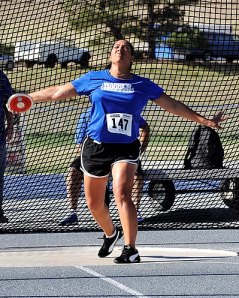4throws - The Facts
4throws - The Facts
Blog Article
7 Easy Facts About 4throws Described
Table of ContentsHow 4throws can Save You Time, Stress, and Money.All about 4throws5 Easy Facts About 4throws ShownSome Ideas on 4throws You Should KnowThe smart Trick of 4throws That Nobody is Discussing
If not, the young pitchers may be most likely to have arm joint and shoulder injuries. It prevails for a train to "get" a bottle when the maximum variety of pitches has been thrown or if the game situation requires a modification. If the bottle remains to play in that video game, he should be placed at shortstop or third base where long hard tosses are called for on a currently exhausted arm.This combination leads to way too many throws and enhances their danger of injury - Shot put for sale. The most safe area is relocating to 2nd or 1st base where the throws are shorter and much less stress is positioned on the arm. It is also important to understand the length of time to relax young pitchers in order to allow the very best healing in between getaways
Bottles must likewise ice their shoulders and joints for 20 mins after tossing to advertise recuperation. Some gamers may use even more than one team in a season. This warrants very close attention to appropriate remainder. Body and arm fatigue change mechanics and bring about injury. When playing on multiple teams, take into consideration pitching on just one and playing an area position on the various other (not catcher).
Any person can toss a ball "over-hand," yet not everybody can do it well. While tossing a round appears basic, it is really a complex set of activities. Shot put.
The 7-Minute Rule for 4throws

(http://tupalo.com/en/users/8110104)The shoulder joint is consisted of three bones, scapulae, clavicle and humerus. The head of the humerus relaxes on the Glenoid fossa of the scapula where it expresses when the muscle mass of the shoulder agreement to relocate the arm. The head is held "against" the glenoid surface through the four Rotator Cuff (RTC) muscular tissues, which act together and develop a force couple when the arm is moved.
The further the shoulder can be on the surface turned while it is abducted, the better the round can be thrown with force and rate, offering all various other body components and motions remain in synch. If any kind of aspect of these auto mechanics is "off," an injury can take place to the shoulder or arm joint that can lead to the inability to toss a ball.
It is the start of the throwing activity, preparing the "body parts" for the act of tossing a sphere. Movement happens in the lower extremities and torso where the substantial bulk of "power" to throw a round is produced.
The 6-Minute Rule for 4throws
This shoulder placement places the former top quadrant musculature on a "stretch" and prepares it to contract forcefully when the arm begins to move ahead in the next stage of the throwing motion. The body begins to relocate onward towards its target during this phase. The lead shoulder is guided at the target and the tossing arm proceeds to relocate into extreme external rotation.

When the round is released, the posterior quadrant musculature starts to acquire eccentrically and strongly to reduce down and control the rotational speed of the Humeral head. In theory, if the eccentric control of the Humeral head did not occur the arm would remain to rotate internally and "rotate" uncontrollable.
Things about 4throws
The amount of eccentric contractile pressure that takes place can harm the posterior musculature if they are not trained properly. The final stage of tossing is the follow-through. This stage decreases all body activities and stops the forward motion of the body. The body comes to rest, and the muscular tissue task go back to a silent state.
Throwing a round "over-hand" involves motion in all parts of the body. If the mechanics are carried out correctly, the sphere can be tossed with fantastic rate and accuracy. If the body is trained properly, the act of throwing can be done over and over again without causing an injury to the throwing shoulder.

Paul Whatley, M.D. "When I was a youngster, baseball was only in the spring and early summertime, so youngsters had a lot of time to recuperate from any concerns credited to repetitive movements his comment is here and stress and anxiety," he says. "Now, in order to stay up to date with everybody else, there is extreme pressure for players to go from the spring season straight into summer season 'All-Star' tournaments and showcases, followed by 'Autumn Round.' There can be extremely little time for the body to recuperate from a sporting activity where repeating is the key to creating the muscle mass memory for success.
Not known Factual Statements About 4throws
When this movement is carried out over and over at a high price of speed, it places substantial tension on the development areas of the joint and the physiological framework of the shoulder, especially in the late cocking and follow-through phases. Due to this, a few of one of the most usual injuries seen in baseball gamers influence the shoulder and arm joint.
Report this page